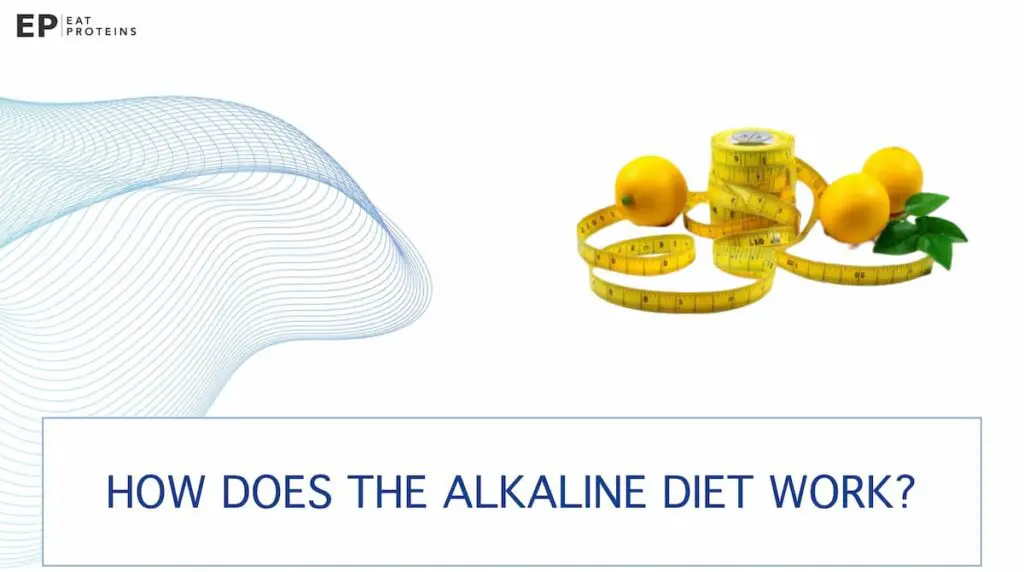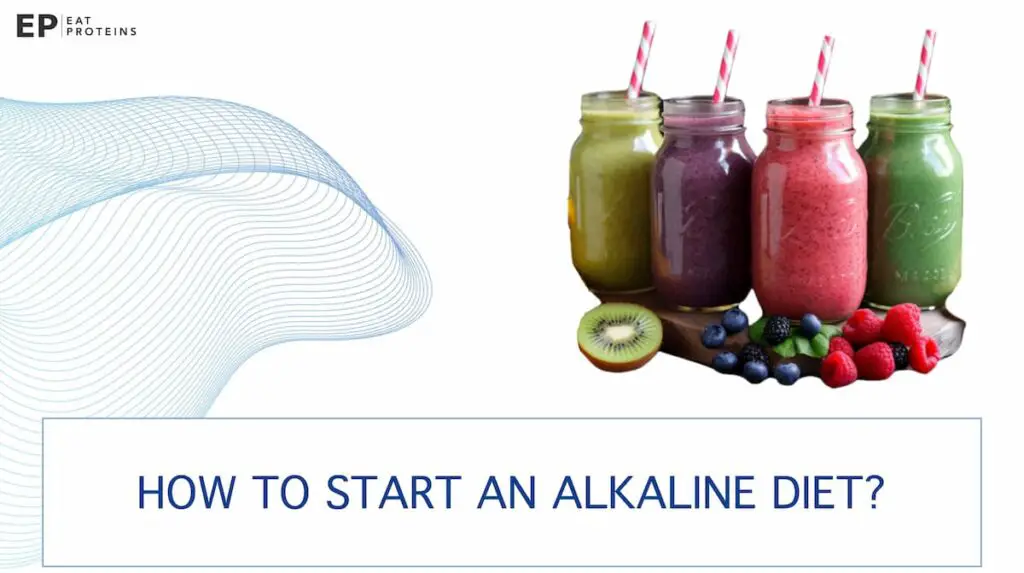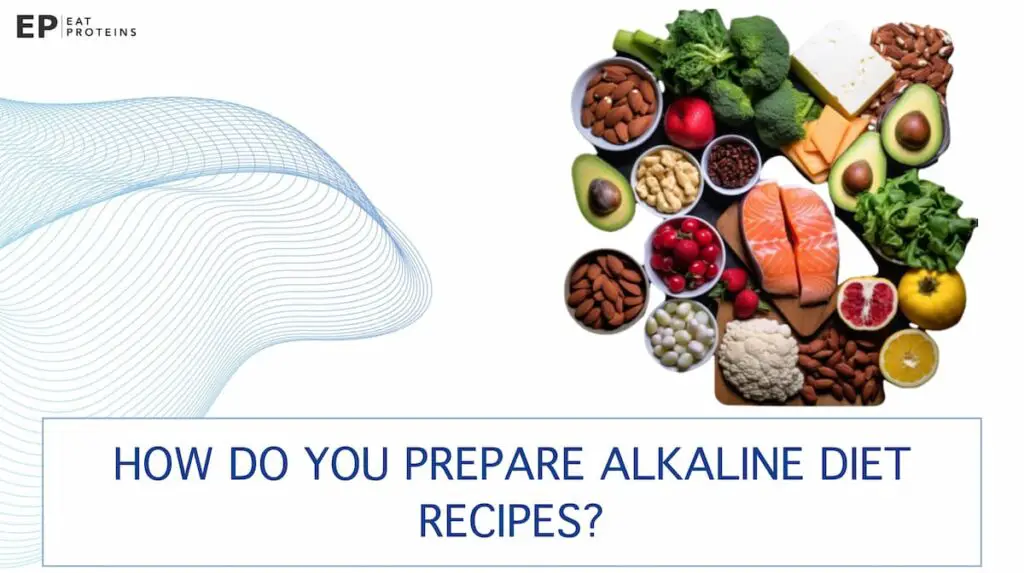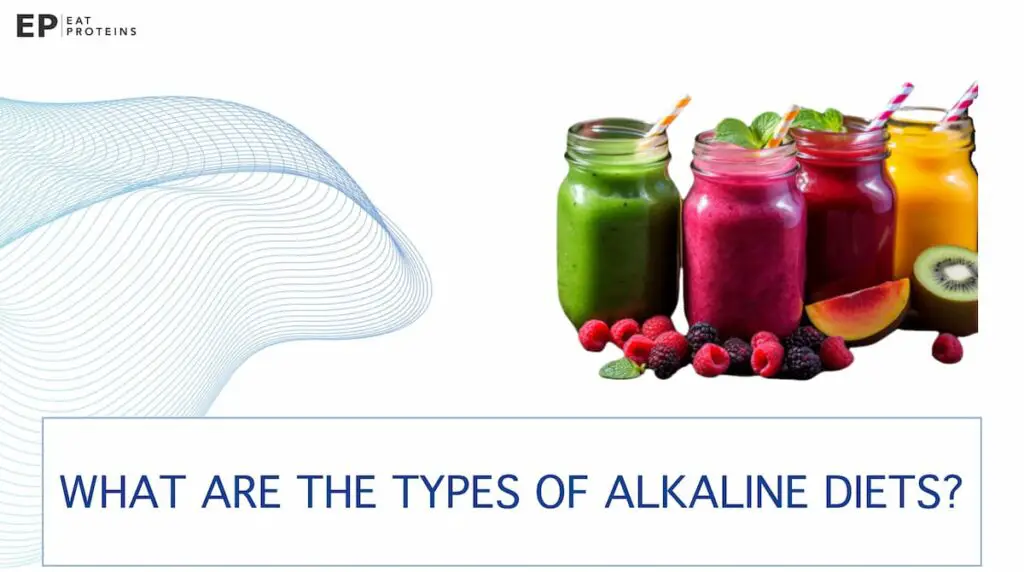The alkaline diet, also known as the pH diet, is a dietary approach that focuses on consuming foods that are alkaline in nature, with the aim of maintaining a more alkaline pH in the body. This diet emphasizes an intake of alkaline foods, such as fruits, vegetables, and whole grains, while limiting the consumption of acidic foods like meat, dairy, and processed foods.
The goal is to achieve a pH balance in the body that is slightly more alkaline, with a target range of 7.35 to 7.45. However, according to a 2012 study by Gerry K. Schwalfenberg from the University of Alberta, the body’s pH is tightly regulated and does not significantly change with dietary changes. While the alkaline diet may promote the consumption of nutritious foods, there is currently limited scientific evidence supporting the specific health benefits claimed by proponents of the diet.
What is the Alkaline Diet?
The Alkaline diet, also known as the alkaline ash or acid alkaline diet, is based on the notion that certain foods can affect the pH balance of your body. Despite its popularity, particularly in alternative medicine circles, there is no scientific evidence to support the claim that Dr. Sebi’s Alkaline diet can treat or prevent diseases like cancer.
Your body naturally maintains its blood pH levels between 7.35 and 7.45, and this diet’s premise that it can significantly alter blood pH is not supported by research. Be cautious as following this diet can result in a less balanced intake, potentially leading to nutrient deficiencies.
What are the core principles of Dr. Sebi’s Alkaline Diet?
Dr. Sebi’s Alkaline diet is based on the following 5 core principles.
- The diet promotes the consumption of alkaline foods, which are believed to balance the body’s pH levels. These foods include fruits and vegetables, particularly those that are non-hybrid and non-genetically modified.
- Acidic foods, such as processed foods, meat, dairy, and refined sugars, are generally discouraged or limited in the diet. These foods are believed to contribute to acidity in the body.
- Drinking plenty of water is essential to maintain hydration and promote detoxification. Aim to consume at least half of your body weight in ounces of water per day (e.g., if you weigh 150 pounds, drink at least 75 ounces of water).
- The diet emphasizes the importance of natural herbs and plants in promoting health and healing. These may include herbs like burdock root, Irish moss, and bladderwrack, which are believed to have alkalizing properties.
- Along with dietary changes, Dr. Sebi’s Alkaline diet encourages adopting a holistic approach to health, including regular exercise, stress management, and adequate rest. Engage in at least 30 minutes of moderate-intensity exercise daily and prioritize self-care for overall well-being.
How does the Alkaline Diet work?
The Alkaline diet works by focusing on foods that are alkaline-forming in the body, aiming to increase your body’s pH level above the neutral level of 7.

You are advised to consume fruits and vegetables, which are alkalizing, and to limit acidic foods like meat, eggs, and grains that contribute to low-grade metabolic acidosis. The goal is to neutralize or store the remaining acid within the body, thereby potentially preserving bone and muscle mass.
How does an Alkaline Diet work for detoxification?
An alkaline diet for detoxification focuses on consuming foods that produce alkaline ash, such as fresh fruits and leafy greens while limiting acidic foods like animal protein and cereals. Detoxification, in this context, refers to the body’s natural process of eliminating or neutralizing toxins through the liver, kidneys, and other organs.
According to a 2017 study by Caroline Passey from Portsmouth Hospitals NHS Trust, reducing the acid load through a low-protein diet with a focus on vegetable proteins and increased fruit and vegetable intake can slow the progression of chronic kidney disease. The study found that an Alkaline diet led to a significant increase in serum bicarbonate levels and was generally preferable for patients, showing promising results for renal function.
How does the Alkaline Diet affect body pH levels?
The alkaline diet aims to adjust your body’s pH levels to become more alkaline, specifically targeting a more effective excretion of toxins within the kidney’s proximal tubules. By consuming a high vegetable diet and supplementing with alkalizing compounds like potassium citrate, you could shift your body’s alkaline reserves.
However, there is limited evidence to support the idea that the Alkaline diet significantly affects body pH levels. A 2016 study by Tanis R. Fenton from the University of Calgary has shown that changes in diet can only raise urine pH by approximately 1.02 units, indicating a minimal impact on overall body pH levels.
What are the benefits of an Alkaline diet?
The seven benefits of an alkaline diet include promoting overall health and well-being, reducing inflammation in the body, improving digestion and nutrient absorption, supporting a healthy immune system, enhancing bone health, reducing the risk of chronic diseases like heart disease and diabetes, and aiding in weight loss.

- Promotes overall health and well-being.
- Reduces inflammation in the body.
- Improves digestion and nutrient absorption.
- Supports a healthy immune system.
- Enhances bone health.
- Reduces the risk of chronic diseases like heart disease and diabetes.
- Aids in weight loss.
How effective is an Alkaline Diet for weight loss?
There is limited scientific evidence supporting the effectiveness of an alkaline diet for weight loss, as per a 2012 study published in the Journal of Environmental and Public Health. While an alkaline diet may have potential health benefits, weight loss is a complex process that is influenced by various factors including calorie intake, exercise, and overall dietary patterns.
Further research is needed to fully understand the specific impact of an alkaline diet on weight loss outcomes. It is recommended to consult with a healthcare professional or registered dietitian for personalized guidance on achieving weight loss goals.
What are the potential side effects of an Alkaline Diet?
The potential side effects of an alkaline diet are not well-established in scientific literature. However, some possible side effects may include nutrient deficiencies, particularly in essential fats and proteins. Additionally, excessive alkalinity in the body may disrupt the natural pH balance, which could affect the normal functioning of certain organs and systems.
- Nutrient deficiencies, especially in essential fats and proteins.
- Disruption of the body’s natural pH balance may affect organ and system functioning.
- Possible gastrointestinal discomfort or digestive issues due to changes in food choices and elimination of certain foods.
- Difficulty maintaining a balanced diet and meeting nutritional needs due to strict dietary restrictions.
- Lack of scientific evidence on the long-term effects of an alkaline diet, making it difficult to fully understand the potential risks and side effects.
How to start an Alkaline Diet?
To start an Alkaline diet, focus on consuming alkaline foods such as fruits, vegetables, nuts, and seeds, while minimizing acidic foods like processed meats, refined sugars, and artificial additives. The following list outlines the steps to start an Alkaline diet.

- Increase your intake of alkaline foods: Consume at least 5 servings (one serving = 1 cup) of fresh fruits and vegetables such as leafy greens, broccoli, cucumber, and berries per day.
- Incorporate plant-based proteins: Include at least 2 servings (one serving = 1/2 cup cooked) of plant-based proteins like legumes, nuts, and seeds into your meals daily.
- Choose whole grains: Opt for whole grains such as quinoa and brown rice over refined grains, aiming for at least 3 servings (one serving = 1/2 cup cooked) per day.
- Drink plenty of water: Aim to drink at least 8 cups (64 ounces or about 2 liters) of water per day to stay hydrated and maintain alkalinity.
- Limit or avoid acidic foods: Limit acidic foods like processed meats, sugary beverages, alcohol, and refined sugars to fewer than 2 servings (one serving = 1 can of soda or 3 oz of processed meat) per week.
- Reduce your intake of dairy products: Limit dairy products to 2 servings or fewer (one serving = 1 cup of milk or 1.5 oz of cheese) per week to minimize acidity in the body.
- Minimize consumption of processed and packaged foods: Aim for fewer than 2 servings (one serving = 1 package of processed snacks or 1/2 cup of canned food) per week, as these often contain added acids and preservatives.
- Incorporate alkaline beverages: Include at least 2 servings (one serving = 1 cup) of alkaline beverages like herbal teas, green juices, and lemon water into your daily routine.
- Pay attention to portion sizes and practice mindful eating: Use a measuring cup or scale to ensure that your portions are consistent, and aim to eat a balanced and varied diet that adheres to the above guidelines.
What are the tips for beginners starting an Alkaline Diet?
For beginners starting an Alkaline diet, focus on balancing bodily pH through alkaline-supporting foods, avoiding acidic foods, planning alkaline meals, smart grocery shopping, drinking alkaline water, considering supplements, consulting a nutritionist, combining foods for maximum alkalinity, and monitoring your pH levels.
- Understand that the central concept of the Alkaline diet is to balance your bodily pH.
- Familiarize yourself with an Alkaline diet food list and incorporate them into your meals.
- Learn which foods are acidic and aim to minimize or avoid them.
- Spend time each week planning alkaline-friendly meals.
- Know what to look for at the grocery store to support your alkaline diet.
- Focus on drinking alkaline water or adding lemon to your water to maintain alkalinity.
- Consider taking vitamins, minerals, and other supplements that support an alkaline environment in your body.
- Seek professional guidance to tailor the diet to your specific needs.
- Use pH strips or other methods to keep track of your pH levels regularly.
What is a sample meal plan for an Alkaline Diet?
A sample meal plan for an alkaline diet focuses on incorporating alkaline-promoting foods like fruits, vegetables, and plant-based proteins while minimizing acidic foods such as processed meats and sugary beverages. The plan includes a variety of different meals for breakfast, lunch, and dinner over a 7-day period to maintain interest and nutritional balance.

Here’s a 7-day sample meal plan for an alkaline diet:
| Day | Breakfast | Lunch | Dinner |
|---|---|---|---|
| 1 | Quinoa porridge with berries | Lentil salad with leafy greens | Brown rice with steamed broccoli and tofu |
| 2 | Green smoothie with spinach and banana | Vegetable stir-fry with quinoa | Whole grain pasta with vegetable marinara sauce |
| 3 | Overnight oats with almond milk and chia seeds | Avocado toast on whole-grain bread | Grilled vegetable skewers with a side of hummus |
| 4 | Lentil soup with a side of whole-grain bread | Alkaline vegetable soup with a side of mixed nuts | Baked sweet potato with a side of sautéed kale |
| 5 | Fresh fruit salad with a sprinkle of flaxseeds | Black bean tacos with whole grain tortillas | Cauliflower rice with a side of roasted vegetables |
| 6 | Herbal tea with lemon and a bowl of mixed berries | Stuffed bell peppers with quinoa and veggies | Lentil soup with a side of whole grain bread |
| 7 | Chia pudding with coconut milk and mixed fruit | Zucchini noodles with avocado pesto | Vegetable sushi rolls with a side of miso soup |
What foods are recommended in an Alkaline Diet?
It’s important to note that while the diet promotes the exclusion of meats, dairy, and grains, medications are more reliable for altering urine pH, debunking the diet’s original “acid-ash” hypothesis related to osteoporosis.
What foods should be avoided on an Alkaline Diet?
In an alkaline diet, it’s recommended to consume foods that assist in alkalinity, such as fruits, vegetables, and plant-based proteins.
- Leafy Greens (e.g., spinach, kale)
- Avocado
- Broccoli
- Cucumber
- Berries (e.g., blueberries, strawberries)
- Quinoa
- Almonds
- Lentils
- Sweet Potatoes
- Coconut Water
- Chia Seeds
- Green Tea
What foods are listed on an Alkaline Diet food chart?
This alkaline diet food chart categorizes foods according to their acidity levels, as per the alkaline diet.
| Acidity Level | Foods |
|---|---|
| Very Low Acidic | amaranth, black-eyed peas, brown rice, butter, canola oil, chutney, coconut, cream, curry, dates, dry fruit, fava beans, figs, fish, gelatin, goat cheese, grape seed oil, guava, kasha, maple syrup, millet, organs, pine nuts, pumpkin seed oil, rhubarb, sheep cheese, spinach, string beans, sunflower oil, triticale, venison (deer), vinegar, wax beans, wild duck, zucchini |
| Low Acidic | artificial sweeteners, barley, beef, beer, brazil nuts, bread, brown sugar, cocoa, cottonseed oil, flour (white), fried foods, fruit juices with sugar, hazelnuts, hops, ice cream, jam/jelly, liquor, lobster, malt, pasta (white), pheasant, pickles (commercial), processed cheese, seafood, soft drinks, soybean, sugar, table salt, walnuts, white bread, white vinegar, whole wheat foods, wine, yeast, yogurt (sweetened) |
| Moderately Acidic | barley groats, basmati rice, bear, casein, chestnut oil, chicken, coffee, corn, cottage cheese, cranberry, egg whites, fructose, garbanzo beans, green peas, honey (pasteurized), ketchup, lard, maize, mussels, mustard, nutmeg, oat bran, olives (pickled), other legumes, palm kernel oil, pasta (whole grain), pastry, peanuts, pecans, pistachio seeds, pomegranate, popcorn, pork, prunes, rye, snow peas, soy milk, squid, veal |
| Highly Acidic | artificial sweeteners, barley, beef, beer, brazil nuts, bread, brown sugar, cocoa, cottonseed oil, flour (white), fried foods, fruit juices with sugar, hazelnuts, hops, ice cream, jam/jelly, liquor, lobster, malt, pasta (white), pheasant, pickles (commercial), processed cheese, seafood, soft drinks, soybean, sugar, table salt, walnuts, white bread, white vinegar, whole wheat foods, wine, yeast, yogurt (sweetened) |
What are some Alkaline Diet-approved snacks?
Some alkaline diet-approved snacks include celery with nut butter, hummus and veggie sticks, and quinoa salad with greens.
- Celery with almond butter
- Hummus with cucumber and carrot sticks
- Quinoa salad with spinach and avocado
- Sprouted grain toast with mashed avocado and tomato
- Raw nuts and seeds
- Green smoothie with spinach, cucumber, and lemon
What types of beverages are recommended on an Alkaline Diet?
In an alkaline diet, beverages with a pH level above 7 are recommended, such as alkaline water, which often contains essential minerals like calcium, potassium, and magnesium. Herbal teas and fresh vegetable juices are also favored for their antioxidant properties, which help neutralize free radicals in the body.
For those looking to limit sugar and caloric intake, cucumber-infused water and lemon water are excellent options that are low in calories and sugar. When choosing beverages, opt for those packaged in glass bottles to avoid the potential leaching of chemicals from plastic, and consider the brand and price for quality assurance.
What is the role of supplements in an Alkaline Diet?
In an alkaline diet, multimineral supplements play a crucial role in regulating acid-base balance by significantly increasing both blood and urinary pH levels, as evidenced by a 2009 study by Daniel König. The study found that alkaline supplement intake led to a significant increase in both blood and urinary pH, indicating its efficacy in promoting alkalinity. Factors to consider when choosing such supplements include mineral content for electrolyte balance, dosage, form (such as powder, pill, or liquid), and additional features like being vegan-friendly or gluten-free.
What are Alkaline Diet pills?
Alkaline diet pills are supplements designed to help regulate the body’s acid-base balance by providing alkaline-forming minerals like calcium, potassium, and magnesium. These pills aim to neutralize excess acidity in the body and support an alkaline environment, which is the central premise of the alkaline diet.
What is the best Alkaline Diet book for beginners?
The best alkaline diet book for beginners, according to the information provided, is “The Dr. Sebi Alkaline Diet Cookbook” by Nauger Loaney, published in August 2020. This book offers a comprehensive guide to the Doctor Sebi Diet, an alkaline plant-based diet, and includes valuable insights along with 250 recipes covering various meal categories.
It serves as a resourceful guide for anyone looking to understand the benefits, rules, and nutritional guidelines of the alkaline diet, making it ideal for those new to this eating approach.
What recipes are featured in an Alkaline Diet cookbook?
Here are five examples of recipes featured in The Dr. Sebi Alkaline Diet Cookbook.
- Quinoa Salad with Avocado and Leafy Greens: A nutritious salad featuring cooked quinoa, avocado slices, and a mix of alkaline-forming leafy greens like spinach and kale, dressed with a lemon-tahini dressing.
- Alkaline Green Smoothie: A blend of cucumber, spinach, avocado, and coconut water, sweetened naturally with a touch of fresh pineapple or apple.
- Lentil and Vegetable Curry: A hearty dish made with lentils and a variety of alkaline-forming vegetables like bell peppers and zucchini, seasoned with alkaline spices like turmeric and ginger.
- Stuffed Bell Peppers: Bell peppers stuffed with a mixture of quinoa, black beans, and vegetables like tomatoes and onions, seasoned with herbs.
- Cucumber and Mint Gazpacho: A refreshing, cold soup made from blended cucumber, mint leaves, and alkaline-forming ingredients like avocado and lime juice.
How do you prepare Alkaline Diet recipes?
Here are 5 practical tips on how to prepare Alkaline Diet recipes.

- Choose Ingredients with High Alkaline pH Level: Opt for ingredients that have a pH level above 7. For instance, aim to include at least 3 to 4 alkaline-forming foods like leafy greens, avocados, or quinoa in each meal.
- Limit Cooking Time for Nutrient Retention: Cook vegetables for no more than 5 to 7 minutes to preserve their alkaline-forming minerals and vitamins.
- Use Organic and Fresh Produce: Prioritize using organic ingredients with a likelihood of 80% or more. Make sure that the freshness of the produce is within 1 week of harvest.
- Control Portion Sizes: Stick to recommended portion sizes, such as 1/2 cup of cooked grains or legumes and 1 cup of vegetables, to ensure that you’re getting a balanced, alkaline-forming meal.
- Budget and Skill Level: Choose recipes that fit within your budget, aiming for an estimated cost of under $15 per meal, and stick to recipes that match your skill level, preferably beginner to intermediate for those new to the diet.
What are the types of Alkaline Diets?
The types of Alkaline diets refer to various dietary approaches that aim to increase the alkalinity in the body by emphasizing the consumption of alkaline-forming foods and minimizing acidic foods. Each type has its own set of guidelines and focus, ranging from plant-based and vegan options to more specific plans like a 21-day reset or incorporating ketogenic principles.

The following list outlines seven main types of Alkaline diets.
- Vegan Alkaline Diet
- Alkaline Plant-Based Diet
- Dr. Sebi Alkaline Diet
- Alkaline Keto Diet
- Alkaline-Acid Diet
- Raw Alkaline Diet
- 21-Day Alkaline Diet
1. Vegan Alkaline Diet
The Vegan Alkaline Diet fuses the ideals of both veganism and alkaline dietary principles to boost overall well-being. By eliminating all animal-based foods, the focus shifts towards a plant-based menu rich in fruits, vegetables, legumes, and nuts. The goal is to create an alkaline environment in the body while steering clear of acidic elements like grains and processed foods.
2. Alkaline Plant-Based Diet
Building upon the Vegan Alkaline Diet, the Alkaline Plant-Based Diet puts an even greater emphasis on consuming whole, unprocessed plant foods. The objective is not just to alkalize the body but also to achieve the pinnacle of nutritional intake through natural, plant-based sources. Unlike its vegan alkaline predecessor, this diet specifically discourages even plant-based processed foods.
3. Dr. Sebi Alkaline Diet
The Dr. Sebi Alkaline Diet takes a unique turn by incorporating specific herbs and natural supplements to achieve an alkaline state. Founded by Dr. Sebi, this diet aims to detoxify the body, encouraging an alkaline environment from within. The distinct feature here is the incorporation of specialized herbs and natural supplements not commonly found in other alkaline diets.
4. Alkaline Keto Diet
Merging the fat-burning principles of the ketogenic diet with the pH-balancing goals of an alkaline diet, the Alkaline Keto Diet serves a dual purpose. It not only aims for ketosis but also for maintaining an alkaline state in the body. As a result, the diet includes high-fat, moderate-protein, and low-carb foods that are alkaline-forming, while avoiding acidic, high-carb options.
5. Alkaline-Acid Diet
The Alkaline-Acid Diet sets itself apart by focusing on a balanced intake of both alkaline and acidic foods. Rather than strictly adhering to alkaline-forming foods, this diet allows for a moderate inclusion of acidic foods. This approach aims for a more balanced pH level in the body, offering a less restrictive alternative to other alkaline diets.
6. Raw Alkaline Diet
Integrating the principles of raw foodism with alkalinity, the Raw Alkaline Diet seeks to offer maximum nutritional benefits. The focus here is on consuming raw fruits, vegetables, and nuts to maintain an alkaline body pH. Unlike other alkaline diets that permit cooked foods, this diet recommends a strictly raw and unprocessed food intake.
7. 21-Day Alkaline Diet
For those seeking a shorter-term commitment, the 21-Day Alkaline Diet offers a time-bound approach to alkalizing the body. This diet, lasting for exactly three weeks, aims for a quick reset of the body’s pH levels and an overall detoxification. It’s an ideal choice for individuals who want to experience the effects of an alkaline diet without a long-term commitment.
What are the scientific facts about the Alkaline Diet?
The scientific facts about the alkaline diet are, according to The British Dietetic Association, that it is based on a misconception that different foods can affect the pH balance of the body, and there is no evidence to support its claims of treating or preventing diseases by changing the body’s acidity levels.
The Alkaline diet has been labeled as one of the “top 5 worst celeb diets to avoid” and the proposed mechanism of changing blood acidity has been debunked by the American Institute for Cancer Research.
How is the Alkaline Diet supported by scientific research?
The Alkaline Diet is not well-supported by scientific research. American Institute for Cancer Research has shown that the body is capable of maintaining its pH levels without dietary influence, making it unlikely that the alkaline diet can significantly impact the body’s pH balance. Furthermore, well-designed clinical trials are lacking to verify the claims made about the alkaline diet and its supposed benefits against cancer or other health conditions.
What claims have been debunked regarding the Alkaline Diet?
The alkaline diet’s claims that it can “kill” cancer cells, significantly change the body’s pH, and that urine and saliva pH strips are effective measures of body pH have been debunked by scientific research.
- Ability to “kill” cancer cells: The claim that an alkaline diet can “kill” cancer cells is not supported by human studies; test-tube studies indicate some chemotherapy drugs become more effective in more alkaline conditions, but these results cannot be extrapolated to the human body.
- Capability to significantly alter the body’s pH range: The idea that you can significantly change the pH balance of your body through diet has been debunked; the body maintains a tightly held pH range of 7.35-7.45, and any deviations are auto-corrected by the body’s own systems.
- Efficacy of using urine and saliva pH strips for measuring body pH: The use of urine and saliva pH test strips as a good measure of the body’s overall pH has been discredited; these tests only measure the pH of urine or saliva, not the blood, and urine is naturally more acidic with a lower pH of around 6.0.
How is the Alkaline Diet viewed by medical professionals?
The alkaline diet is generally not viewed favorably by medical professionals as there is limited scientific evidence to support its claims and it may lead to an imbalanced diet. Medical professionals advise a balanced and varied diet to promote overall health and lower the risk of diseases like cancer.
Is the Alkaline Diet a healthy diet?
Yes, the alkaline diet can be considered a healthy diet if it encourages increased consumption of fruits and vegetables, but its claims about altering body pH to treat diseases are not scientifically substantiated.
What does the Mayo Clinic say about the Alkaline Diet?
The Mayo Clinic states that while some studies suggest that an Alkaline Diet may slow bone loss, it is not necessarily better than a healthy diet. They also mention that there is no strong evidence to support claims that an alkaline diet prevents or treats cancer.
How does the Alkaline Diet compare to the Mayo Clinic diet?
The alkaline diet focuses on consuming alkaline-forming foods to balance the body’s pH levels, whereas the Mayo Clinic diet emphasizes a balanced eating plan that includes all food groups for overall health and weight management. While the alkaline diet restricts certain food groups like dairy and meat, claiming they cause acidity, the Mayo Clinic diet allows for a more varied intake, including lean proteins and low-fat dairy.
How does the Alkaline Diet compare to a Vegan Diet?
The alkaline diet and vegan diet both emphasize plant-based foods, but for different reasons: the alkaline diet aims to balance the body’s pH levels, while the vegan diet avoids all animal products for ethical, environmental, or health reasons.
While both diets encourage the consumption of fruits and vegetables, the alkaline diet restricts certain plant foods considered to be acidic, which are generally permissible in a vegan diet. Despite their plant-based focus, the vegan diet is more flexible in food choices, allowing for a broader range of grains, legumes, and nuts, whereas the alkaline diet limits these based on their pH levels.
Where can you find an Alkaline Diet plan in PDF format?
You can find an alkaline diet plan in PDF format on various health and wellness websites that specialize in dietary guides, as well as through online marketplaces that sell e-books. It’s essential to ensure that the source is reputable and ideally backed by certified nutritionists or healthcare providers.
